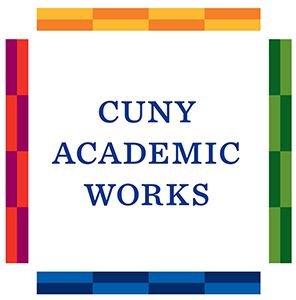
Welcome to the June 2023 edition of QC Research Highlights!
This month, as always, we’re featuring some recent faculty publications. Please enjoy, and thanks as always to the authors!
All the works featured in this series are available to read and download for free from CUNY Academic Works.
The article “Cosmogenic Ages Indicate No MIS 2 Refugia in the Alexander Archipelago, Alaska” was the work of a group of authors, including Alia Lesnek (Earth and Environmental Science), along with Caleb K. Walcott (University at Buffalo), Jason P. Briner (University at Buffalo), James F. Baichtal (Tongass National Forest), and Joseph M. Licciardi (University of New Hampshire, Durham). The article is about the Cordilleran Ice Sheet, one of several ice sheets covering North America during the Last Glacial Maximum. The researchers were interested in improving the mapping of the ice sheet by studying when deglaciation occurred in the Alexander Archipelago, in southeastern Alaska. They sampled bedrock and boulders in the area for beryllium surface exposure dating in University at Buffalo’s Cosmogenic Isotope Laboratory. Looking at the northern areas of the region, which had previously been mapped as free of ice during the time period in question, this study found evidence that at least some of these areas were actually covered in ice and didn’t experience deglaciation until later. The article also discusses the implications of this for plants and humans.
Amy Hsin (Sociology) and co-author Sofya Aptekar (CUNY School of Labor and Urban Studies) wrote “The Violence of Asylum: The Case of Undocumented Chinese Migration to the US.” Chinese undocumented migrants are an understudied group, so the researchers wanted to see how the legal violence of immigration law affects this population specifically. While US asylum policies make Chinese migrants more often eligible for asylum than migrants from Central America or Mexico, the asylum system is very expensive and can take years to navigate. Thus, a network of migrant legal services has arisen in the Chinese community, but raids on these services have led to increased scrutiny and a decline in asylum approval rates. The authors of the article interviewed many participants in the system, including undocumented/formerly undocumented Chinese migrants and those who work with them, such as legal workers, teachers, community organizers, and more. The article examines what has been called the “architectures of repulsion,” barriers put in place to make migration more difficult. The experiences of the participants demonstrate how the legal structure creates widely varying levels of difficulty based on differing socioeconomic statuses, as well as favoring certain types of migration over others.
The article, “The Rise and Fall of Dopamine: A Two-Stage Model of the Development and Entrenchment of Anorexia Nervosa,” by Jeff Beeler (Psychology) and co-author Nesha S. Burghart (Hunter College), proposes a model for the role of dopamine in eating disorders. So far, research has shown a link between anorexia and dopamine, but it’s not yet clear whether dopamine is increased or decreased, nor whether abnormal dopamine levels are a risk for anorexia or a result of it. The authors suggest that there are two stages; in the first stage, weight loss triggers an increase in dopamine production, while in the second stage, as anorexia becomes more entrenched, repeated exposure causes dopamine to decrease, much like it does in the case of addiction. If correct, this model has important implications for treatment, as the first and second stages could be treated differently. The authors recommend further studies to test this hypothesis.
This is one of a series of blog posts featuring faculty publications in CUNY Academic Works. Academic Works is a service of the CUNY Libraries dedicated to collecting and providing access to the research, scholarship, and creative and pedagogical work of the City University of New York. In service to CUNY’s mission as a public university, content in Academic Works is freely available to all.
If you would like to share your research in Academic Works, please see this guide to Academic Works, or contact Nancy.Foasberg@qc.cuny.edu.
Share Post:
